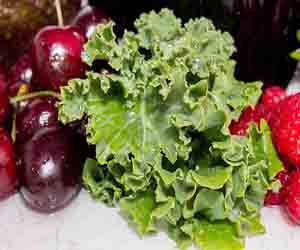


Where Science And Craft Converge

Brewing, a timeless tradition that has evolved over centuries, is more than just a method to prepare beverages; it's an art form that combines scientific precision with creative flair. Whether you're brewing coffee, tea, beer, or any other libation, the art of brewing is a captivating journey that blends tradition, innovation, and a profound appreciation for the drink in question.
At its core, the art of brewing is a science, one that demands a profound understanding of ingredients, temperature, time, and ratios. In coffee brewing, for instance, the grind size, water temperature, and brewing time must harmonize perfectly to create a cup of liquid gold. The alchemical transformation of water and coffee beans into a symphony of flavors is not a random occurrence; it is a meticulously planned and executed process.
The choice of ingredients plays a pivotal role in brewing. Whether it's the selection of coffee beans, tea leaves, hops, malt, or other elements, the brewer becomes a curator, choosing the best raw materials to create a masterpiece. Much like an artist selecting their palette, the brewer's choices will dictate the colors and flavors of the final creation.
Temperature is a critical factor in brewing. The ideal range may vary depending on the beverage and the brewing method, but precision is non-negotiable. A slight variation in temperature can lead to vastly different outcomes. Coffee brewed at the wrong temperature can become over-extracted or under-extracted, while beer fermentation temperatures can profoundly affect the taste and aroma.
Time is another essential element. The brewer must possess patience and timing skills akin to a seasoned chef. The steeping duration for tea, the brewing time for coffee, or the fermentation period for beer all contribute to the final flavor profile. Like a painter, the brewer waits for the right moment to unveil the masterpiece.
The art of brewing also marries tradition and innovation. It pays homage to centuries-old techniques and recipes while constantly evolving to meet modern tastes and trends. Craft brewers, for example, experiment with exotic ingredients, aging processes, and novel flavor combinations, all while respecting the fundamental principles of brewing. It's a dynamic dance between the old and the new, where respect for tradition meets the excitement of exploration.
Beyond the scientific aspects, brewing is a sensory experience. It engages all the senses - the aroma of coffee beans as they bloom, the sound of a kettle's whistle, the sight of a frothy head on a freshly poured beer, the feel of a well-crafted brewer's tool, and, of course, the taste of the final creation. This multisensory journey is what elevates brewing to an art form.
The art of brewing transcends the simple act of making a beverage. It's a fusion of science and art, a delicate balance between precision and creativity. The brewer, be it a barista, a tea master, or a brewmaster, is an artisan who orchestrates this harmonious symphony of elements to produce liquid poetry. Whether you're sipping a cup of coffee, a pint of beer, or a fragrant cup of tea, take a moment to appreciate the artistry behind each brew - it's a testament to human ingenuity and a celebration of the senses.




Mastering Efficiency In The Kitchen
 Benefits Of Quick Cooking
Benefits Of Quick Cooking
Here are some compelling reasons to embrace quick cooking:
1. Time Efficiency: The most obvious benefit is that quick cooking saves time. You can have a meal on the table in minutes, making it ideal for busy weeknights or when unexpected guests drop by.
2. Reduced Stress: Traditional cooking can be stressful, especially when time is limited. Quick cooking techniques minimize stress by simplifying the process and eliminating the need for elaborate preparations.
A Journey To Wholesome Eating
 3. Sustainability: Real food is often closely linked to sustainable and ethical agricultural practices. By choosing real food, consumers can support responsible farming and contribute to a more environmentally friendly food system.
3. Sustainability: Real food is often closely linked to sustainable and ethical agricultural practices. By choosing real food, consumers can support responsible farming and contribute to a more environmentally friendly food system.
4. Nutrient Density: Real food is inherently rich in essential nutrients, vitamins, and minerals. It offers more nutritional value per calorie, making it a sensible choice for those looking to optimize their diets.
The Benefits Of Real Food:
Consuming real food offers numerous benefits, including:
1. Nutritional Value: Real food is packed with essential nutrients, providing a wealth of vitamins, minerals, and antioxidants that support overall health.
2. Weight Management: Real food is often lower in calories and higher in fiber, promoting satiety and aiding in weight management.
3. Better Digestion: The fiber in real food supports healthy digestion and helps maintain a balanced gut microbiome.
4. Enhanced Flavor: Real food is renowned for its natural, unadulterated flavors. It enhances the culinary experience, making meals more enjoyable.
Making Smart Choices For A Better Lifestyle
 The Rationale For Healthy Alternatives:
The Rationale For Healthy Alternatives:
The need for healthy alternatives arises from several factors:
1. Health Consciousness: A growing awareness of the importance of a balanced diet and active lifestyle has inspired individuals to seek healthier options. People are increasingly looking for ways to make their favorite dishes more nutritious.
2. Dietary Restrictions: For those with dietary restrictions or specific health concerns, such as allergies or sensitivities, healthy alternatives offer a way to enjoy favorite foods without adverse effects.
3. Weight Management: Healthy alternatives can be instrumental in weight management. They enable people to enjoy their favorite meals in a calorie-conscious manner, helping them maintain or achieve a healthy weight.
4. Lifestyle Diseases: The rise of lifestyle diseases such as diabetes, obesity, and heart conditions has encouraged individuals to adopt healthy alternatives to manage their health proactively.
A Fresh Perspective On Food
 Flavor And Freshness: One of the most significant advantages of the farm-to-table movement is the unparalleled flavor and freshness of the food. Produce is harvested at its peak ripeness and often delivered to local restaurants and markets within hours. As a result, dishes are bursting with vibrant, natural flavors that are not overshadowed by long journeys or artificial preservatives.
Flavor And Freshness: One of the most significant advantages of the farm-to-table movement is the unparalleled flavor and freshness of the food. Produce is harvested at its peak ripeness and often delivered to local restaurants and markets within hours. As a result, dishes are bursting with vibrant, natural flavors that are not overshadowed by long journeys or artificial preservatives.
Supporting Local Economies: Farm-To-table practices contribute to the economic well-being of local communities. By purchasing directly from local farms, restaurants and consumers invest in their neighbors and promote a thriving regional economy. This support for small-scale farmers is essential for their continued success.
Sustainability And Reduced Food Miles: The farm-to-table movement champions sustainability. When food is sourced locally, it reduces the distance it must travel from farm to plate, thereby lowering its carbon footprint. The reduction in food miles translates into less energy consumption, decreased greenhouse gas emissions, and less strain on transportation infrastructure.
Nourishing Your Mind, Body, And Soul
 The Wholesome Pantry is a brand that has wholeheartedly embraced the philosophy of wholesome living. Their mission is to provide individuals with access to products that not only taste delicious but also support a healthier lifestyle. They understand that nourishing your body begins with the food you consume but doesn't end there.
The Wholesome Pantry is a brand that has wholeheartedly embraced the philosophy of wholesome living. Their mission is to provide individuals with access to products that not only taste delicious but also support a healthier lifestyle. They understand that nourishing your body begins with the food you consume but doesn't end there.
Eating For Wholesome Living: At the core of wholesome living is the food we consume. Choosing natural, unprocessed, and nutrient-rich foods is essential. Wholesome living emphasizes fresh produce, locally sourced ingredients, and sustainable agricultural practices. The Wholesome Pantry exemplifies this by offering a range of products that are not only delicious but also made from clean, quality ingredients. By selecting foods without additives, preservatives, and artificial flavors, you're supporting your health and well-being.
Mindful Eating: Wholesome living encourages mindful eating. It's about being present at meal times, savoring every bite, and paying attention to your body's hunger and fullness cues. When you eat mindfully, you're more likely to make healthier food choices and enjoy your meals to the fullest. This approach to eating can help prevent overeating and foster a healthier relationship with food.